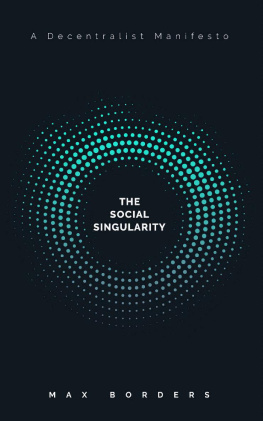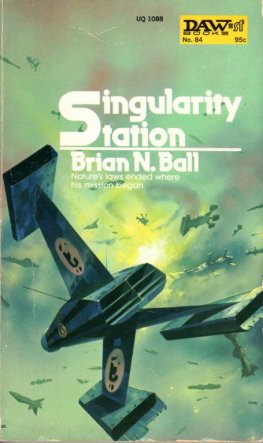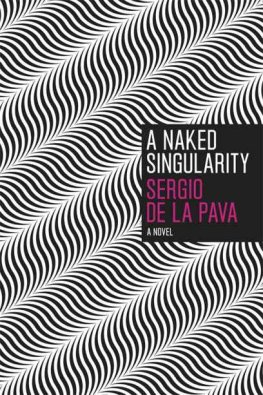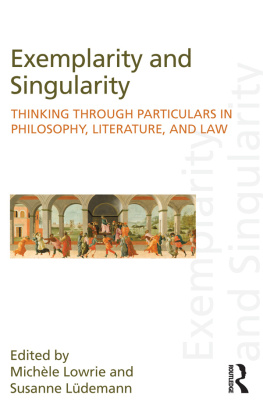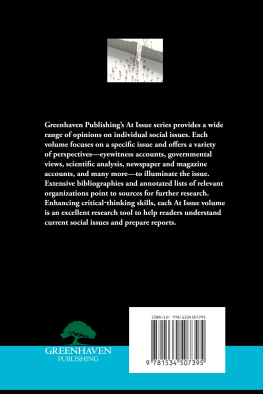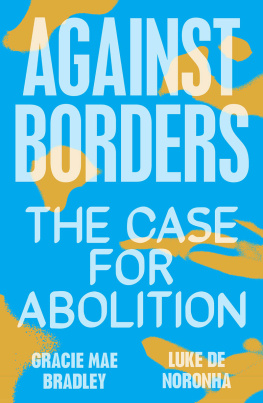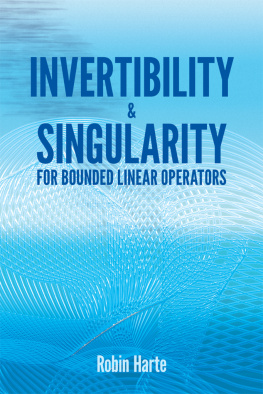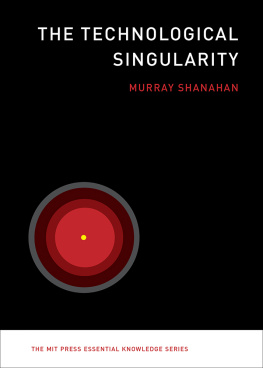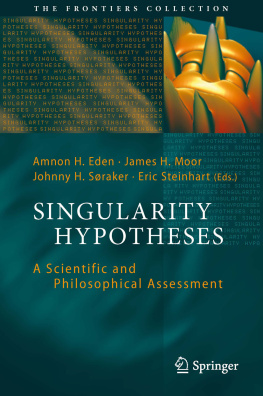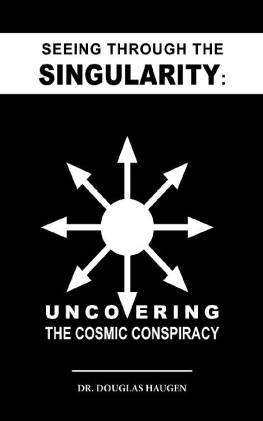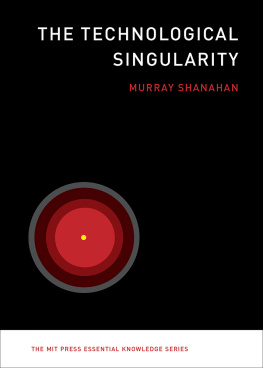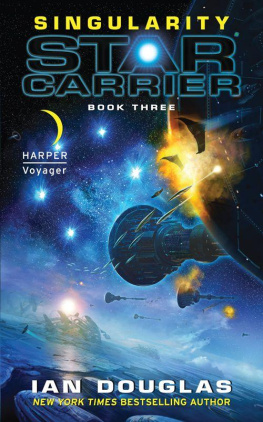Max Borders - The Social Singularity: A Decentralist Manifesto
Here you can read online Max Borders - The Social Singularity: A Decentralist Manifesto full text of the book (entire story) in english for free. Download pdf and epub, get meaning, cover and reviews about this ebook. year: 2018, publisher: Social Evolution, genre: Politics. Description of the work, (preface) as well as reviews are available. Best literature library LitArk.com created for fans of good reading and offers a wide selection of genres:
Romance novel
Science fiction
Adventure
Detective
Science
History
Home and family
Prose
Art
Politics
Computer
Non-fiction
Religion
Business
Children
Humor
Choose a favorite category and find really read worthwhile books. Enjoy immersion in the world of imagination, feel the emotions of the characters or learn something new for yourself, make an fascinating discovery.
- Book:The Social Singularity: A Decentralist Manifesto
- Author:
- Publisher:Social Evolution
- Genre:
- Year:2018
- Rating:5 / 5
- Favourites:Add to favourites
- Your mark:
- 100
- 1
- 2
- 3
- 4
- 5
The Social Singularity: A Decentralist Manifesto: summary, description and annotation
We offer to read an annotation, description, summary or preface (depends on what the author of the book "The Social Singularity: A Decentralist Manifesto" wrote himself). If you haven't found the necessary information about the book — write in the comments, we will try to find it.
The Social Singularity: A Decentralist Manifesto — read online for free the complete book (whole text) full work
Below is the text of the book, divided by pages. System saving the place of the last page read, allows you to conveniently read the book "The Social Singularity: A Decentralist Manifesto" online for free, without having to search again every time where you left off. Put a bookmark, and you can go to the page where you finished reading at any time.
Font size:
Interval:
Bookmark:
The
Social
Singularity

The
Social
Singularity
A Decentralist Manifesto
Max Borders
For more information, visit
http://social-evolution.com
2018 by Max Borders
All rights reserved. No part of this book may be reproduced or transmitted in any form or by any means, electronic or mechanical, including photocopying, recording, or any information storage and retrieval system, without permission in writing from the copyright owner. For information on distribution rights, royalties, derivative works, or licensing opportunities, please contact the publisher at the address below.
Quantity discounts are available on bulk purchases of this book for reselling, educational purposes, subscription incentives, gifts, sponsorships, or fundraising. Special books or book excerpts can also be created to fit specific needs such as private labeling with your organizations logo on the cover and a message from a VIP printed inside.
Social Evolution
3405 Harpers Ferry Lane
Austin, TX 78745
To
Justin
and Jessica
Arman
because they believe
Contents
Detailed Contents
Introduction
For an undetermined period of time I felt myself cut off from the world, an abstract spectator . The road kept descending and branching off, through meadows misty in the twilight.
Jorge Luis Borges
We have always tried to know tomorrow. In our attempts, we end up shaping it.
Our ancestors went to seers who read tea leaves, auras, or entrails. To best an enemy or win a lover, rulers consulted oracles for messages from the gods. Oracles in antiquity were thought to be divinely inspired, so false predictions were blamed on bad interpretation.
Modern oracles are decidedly more fallible. Were also more accountable. So we look for patterns in the world beyond the guts, and we channel the god of trend lines. Still, we make predictions we hope will come true, which is often why we make them to start with.
Today they call us futurists. But to be a futurist still takes a little mysticism. Its not the vagueness of Nostradamus or the Magick of Aleister Crowley but the spark of the science-fiction writer who plants ideas in the minds of innovators.
Futurists know that in every prediction there is a potential act of creation. After all people who believe our predictions are more likely to change. And if enough people change, the world might just get better. In The Social Singularity , Ill show that the worlds power centers are breaking up and that this process can liberate people from poverty, end acrimonious politics, and help humanity avoid the robot apocalypse. I realize thats a tall order. But thats just how much potential there is in decentralization.
Decentralization?
This is the kind of big, abstract idea editors warn could mean the death of your book sales. Write about a person or tell a story , theyll say, chomping on the end of a spent cigar. I cant sell a book about an abstraction! Well, weve got to try. The future depends on it.
In this volume, I suggest that if we reorganize ourselves and our systems of collective intelligence, we will be better as a species. The social singularity is a point beyond which humanity will have reoriented itself. Well operate more like a hive mind.
A lot of people are afraid of whats to come. But to live in fear of the future is to underestimate ourselves. So this book is also about shedding fear.
Still, its not your basic airplane read. Its designed to challenge you. To break conventions. To reframe our thinking a little so as to disrupt the habits of mind that are keeping all of us from reaching our full potential. You see, our march toward the social singularity will be largely positive.
Yes, there will be a great economic churn thanks to artificial intelligence and automation. Of course, there is always the risk of future shock, But technology is helping us to become far more collaborative, and there is more ordering power in that force than in any demagogue with a standing army.
Im not a passive chronicler of events. Behind this book lies a deeper purposea mission that is the wellspring of my thinking. If youre comfortable with all these caveats, I invite you to join me in exploring a new set of forking paths into the future. For as soon as we take those first steps on any path, were engaging in acts of creation, for better or for worse.
Chapter One
The End of Politics
The spectacle is not a collection of images, but a social relation among people, mediated by images.
Guy Debord
If youre reading this, chances are you own some sort of mobile computing device. Maybe you havent given up paper books entirely, but youre surely tethered. I suspect you check your device at least twice a day, if not twice an hour. And Id bet you have at least fifty apps.
Now imagine you wake up one morning, turn on your device, and realize everything has changed. Where before there were fifty or more applications, there are now only two: a red app and a blue app. It seems the apps compete for processing power so now the device runs more slowly and less efficiently. And on this operating systemcall it DOS, or Democratic Operating Systemonly the red app and the blue app run. Though the device advertises compatibility with other apps, everybody finds DOS only seems to work with the red one and the blue one.
You are understandably frustrated with your device, especially as you remember a time when it ran much better, had far more options, and allowed you to customize it according to your needs and preferences.
This thought experiment is meant to help us reflect on our sociopolitical status quo. Not on whos in charge, not on the next election, but rather upon the system itself. Why? Because there seems to be a collective illusion that a democratic republic is as good as it gets. After all, we havent yet really tried anything beyond DOS. And there seems to be a near-universal failure of imagination with respect to how we could do better.
In a 1947 speech, Winston Churchill made his now-famous assessment:
Many forms of Government have been tried and will be tried in this world of sin and woe. No one pretends that democracy is perfect or all-wise. Indeed, it has been said that democracy is the worst form of government except all those other forms that have been tried from time to time.
This is the sort of fatalism most people accept. In fact, almost no one tries to imagine another social operating system. The most creative and ambitious ideas for social change almost always happen within DOS: We should pass law X or adopt policy Y. Very few are trying to figure out how to develop something entirely new that circumvents politics entirely or, at least, fundamentally changes it.
It should be clear by now that Im not interested in preserving the status quo. We can do betterand we must, because DOSs days are numbered.
For a lot of people, this will be unsettling.
Some readers will scoff. Others will worry Im trying to rock a boat thats keeping billions of people afloat. Still others will say Im an anarchist, a utopian, or a dreamer. And we should no doubt treat with great respect the system that took us from bullets to ballots. The democratic republic has become the most prosperous and arguably peaceful way to organize society the world has seen. So its no wonder smart people like Francis Fukuyama have argued that the democratic republic was the form on which most of the countries of the world would eventually settle. There is a lot to recommend about this form, particularly when considered in the arc of history.
But there is a lot wrong with DOS. And whatever happens after DOS should be a welcome upgrade that addresses what doesnt work about this particular social operating system, all while introducing new functions, new features, and a new paradigm of human social interaction.
Next pageFont size:
Interval:
Bookmark:
Similar books «The Social Singularity: A Decentralist Manifesto»
Look at similar books to The Social Singularity: A Decentralist Manifesto. We have selected literature similar in name and meaning in the hope of providing readers with more options to find new, interesting, not yet read works.
Discussion, reviews of the book The Social Singularity: A Decentralist Manifesto and just readers' own opinions. Leave your comments, write what you think about the work, its meaning or the main characters. Specify what exactly you liked and what you didn't like, and why you think so.

